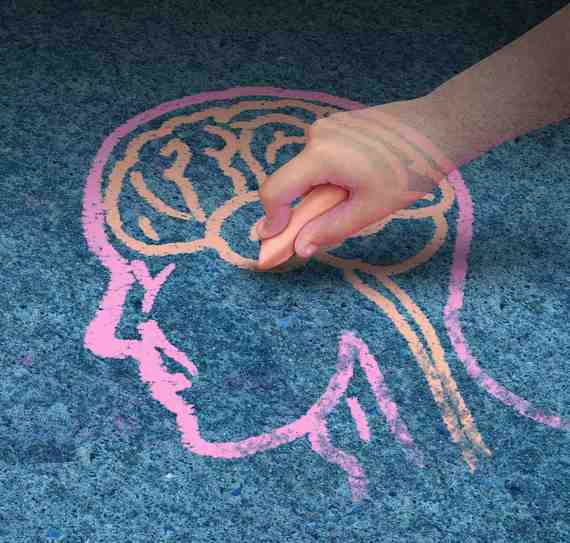Or, Towards a Wisdom Quotient and Novel Educational-Vocational Paradigm
Automation Performance Anxiety
Increasingly, there is a bifurcation of prognostications of what may come with the development of so-called strong Artificial Intelligence, or AI. Proponents say it will afford an opportunity for humankind to be free of the yoke of repetition and monotony. But pessimistic skeptics say not so fast--AI will displace jobs--even good high paying ones, and for the first time in history, technology will not be a force for creative destruction, but merely a master of sorts [and hopefully a benevolent one].
"Automation anxiety" is on the rise, the flames of which are fanned seemingly daily by tech moguls and scientist alike. But what answers do they put forward?
Let me put forward a response that I believe both camps can embrace: regardless of which scenario plays out--and I think it is highly likely one will--humanity is not doing what we need to do to be ready for whichever comes. The good news is, the response is the same to whichever scenario we are faced with-- existential threat or utopian opportunity.
Embracing a Wisdom Construct
So what is this one, correct path forward to handle the emergence of either a malevolent AI or, merely an uncaring and agnostic one? After all, and somewhat humorously, the reigning [human] Jeopardy! champs recently declared themselves to be the "first knowledge-industry workers put out of work by the new generation of 'thinking' machines".
Surely the clear answer is to realize that the pursuit of knowledge is no longer good enough, and we must shift to wisdom. In a similar way that the DIKW Pyramid [data, information, knowledge, wisdom] advanced the notion of a relativistic, hierarchal value schema, so too can we think of socioeconomic shifts that have occurred taking humankind from a hunter-gatherer species to an agrarian culture, and then to an industrial followed by knowledge based society. Shouldn't the next step be an age of sapience?
I've written about the impending loss of the preeminence of the knowledge worker and the necessary replacement by the wisdom worker--one who relies on all aspects of human exceptionalism--not merely manipulation of data and logical reasoning. The ancient Greeks were big fans of wisdom [philosophy meaning the love of wisdom]. So much so that Aristotle is credited as defining a version of wisdom called phronesis, that may be translated as practical wisdom. I think this is what we need when we advance a new paradigm of wisdom work. Indeed, it can be posited that this might be defined as the intersection of intellect, creativity and empathy:
Wisdom Quotient (practical) = IQ ∩ CQ ∩ EQ
Such a Wisdom Construct could be taught and enhanced, in part by a concerted effort to develop those dimensions, and then made improvable and operational: It should be possible for individuals, groups and indeed society as a whole to become wiser-- not as some metaphysical luxury, but as the result of an existential dilemma facing humanity.
Beyond Reading, Writing and 'Rithmetic
Human intellectual pursuits can be thought of as a continuum of sorts, between theoretical constructs leading to explicit design [the Manhattan Project, Moon Shot] and trial and error, '1% inspiration-- 99% perspiration', serendipitous results [The light bulb, penicillin].
In short, between deliberate scholarship and "tinkering".
Similarly, human work can be thought of as a spectrum from building things with one's hands [or the extension of such using tools and the like]-- shaping one's environment creatively and in a non-algorithmic sense [dare I say 'organically'?]-- and one based on both deliberate thought [cogito ergo sum] and mindful, reflection, and subconscious processes [Eureka! moments].
From artisan to thinker, in other words.
Put into a simple acronym [seemingly a must for these sort of things!], we can state this new educational-vocational rubric as STAT--scholar, tinkerer, artisan, thinker.
The fact that the term connotes an urgency makes it all the better.
The current educational wisdom is calling to promote STEM--and as valuable as science and math, and engineering are, it's primarily limited to one wisdom paradigm dimension. Adding more programmers to the ranks of humanity hardly seems like the answer to such a monumental shift and is short sighted. Won't AI be able to program itself anyway?
Adding an A for art and getting STEAM is better, but we are still defining education by academic shorthand, and not by the longhand of life. Instead of putting study and professional development into stale, synthetic buckets of course curricula like we have done for years, why not look to:
1). enhance the individual constructs of practical wisdom; and
2). think in terms of organic clusters of human endeavor.
Take a Page from Silicon Valley
There's no turning back the inevitable march towards strong AI. It probably doesn't matter why, but suffice it to say that throughout time, if there is something to invent or to create, or some puzzle to solve, human insatiable curiosity will be there to meet that challenge. In other words, to turn things previously indistinguishable from magic into method.
Silicon valley is all in to win the race to create strong AI. Depending on your view the outcome is mixed, but the commitment is fervent.
But where is the same passion to raise the game and inspire the carbon life forms? The lust to reboot and upgrade our "wetware", if you will. And not with cyborg implants or the like, but with a radical change in education--in our schools, institutions, in our workplaces--and in our daily lives?
What if a fraction of the time, energy and investment capital flowing to silicon intelligence was put into fostering organic wisdom?
Wouldn't the investment in wiser employees have a demonstrable -and huge--impact on ROI, in the form of more empathic marketing campaigns, more creative solutions, more fulfilling products?
Forget about the "rise of the machines", we should be worried about the fall of humans.

